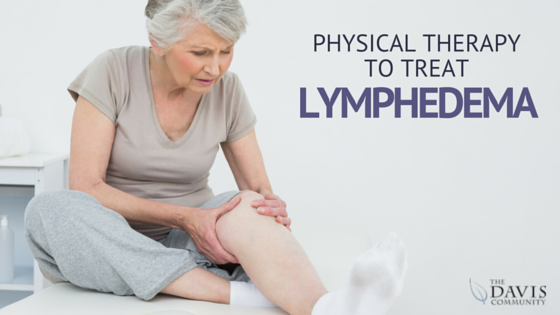Physical Therapy to Treat Lymphedema
Lymphedema refers to swelling, generally in the arms or legs, that is due to the build up of lymph fluid. If you or a loved one are suffering from this condition, you are no doubt painfully familiar with the swelling and discomfort it causes. If you have been dealing with the condition for a while, you have probably already been undergoing treatment. However, if you have recently begun to experience symptoms or if you feel that you may be at risk for developing lymphedema, you may have a lot of unanswered questions: What causes this condition? Can it be prevented or cured? How is it treated?
What Causes Lymphedema?
Lymphedema occurs as the result of missing or damaged lymph nodes. Although at times lymphedema is hereditary, it is more commonly caused by damage to the lymph nodes, frequently as a result of cancer treatment. Infection or scar tissue are other possible causes. When the normal function of the lymphatic system is disrupted, it causes a build up of lymph fluid and swelling at the site of the fluid accumulation.
How is it Treated?
Unfortunately, Lymphedema is not curable. However, treatment can help to reduce the swelling and pain it causes. Depending on the severity of the condition, possible treatments include:
- Exercise or massage. Either of these will stimulate the lymphatic system and promote drainage.
- Wrapping. The proper bandaging technique to help with lymphedema would be the tightest at the affected limb’s extremity and then gradually get looser as it progresses toward the body.
- Compression. This can be accomplished either by the use of a pump or with compression garments.
- Complete Decongestive Therapy (CDT). This is an intensive combination of several treatment options including manual lymphatic drainage, compression, exercise, and proper skin care to prevent infection.
The Role of Physical Therapy
A physical therapist can perform treatments for lymphedema and, in addition to your doctor, is a valuable part of your health care team. You should look for a therapist who has passed a training course in treating lymphedema. Qualified therapists will have the initials CLT (certified lymphedema therapist) behind their names.
Working with a physical therapist will help you to design a treatment plan that will enable you to control swelling in the affected limb and resume normal activity to the extent possible. In milder cases, gentle exercise, compression and elevation of the limb may be all that is necessary. Your therapist will teach you helpful exercises and can show you proper wrapping techniques or help you find the right compression garments.
In more severe cases, your therapist will probably recommend complete decongestive therapy. These treatments may last anywhere from two to twelve weeks, during which time your therapist will carefully monitor the size of your limb. Once swelling has been reduced to the desired level, you can begin to take more responsibility for your care. Your therapist will help you to develop the proper exercise regimen and will educate you about proper diet and skin care to reduce fluid build up and prevent infection.
If you are concerned about the possibility of developing lymphedema, either as the result of an upcoming surgery or because of other risk factors, a certified lymphedema therapist can also help you to take the right steps to minimize your risk.
The Davis Community Offers Rehabilitation at Its Finest
The Davis Community has a state-of-the-art rehabilitation center where our residents can exercise and/or recover from their surgeries using modern equipment designed especially for seniors. We take pride in offering the best rehabilitation in Wilmington NC, and our team now includes a lymphedema specialist. If you or an aging parent need physical rehabilitation, then visit our Facebook page to learn more about the fitness center at Davis Community. Or, for more information about our retirement community, nursing homes, or skilled nursing services, just give us a call today at 910-566-1200.
